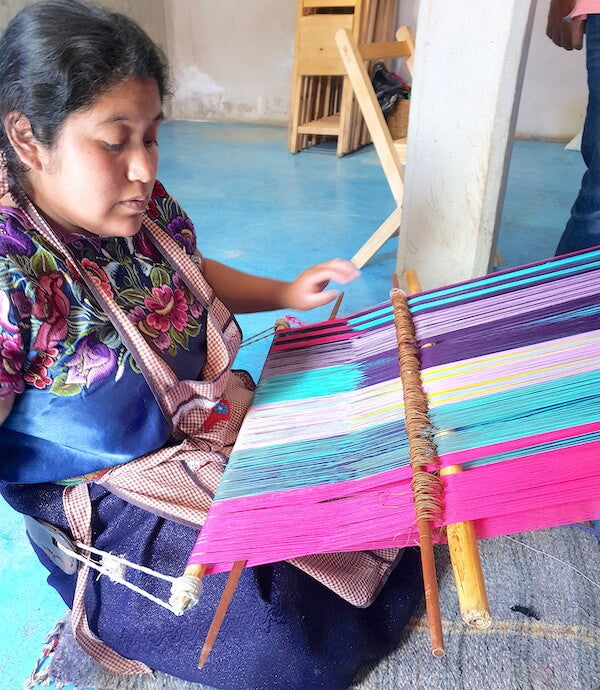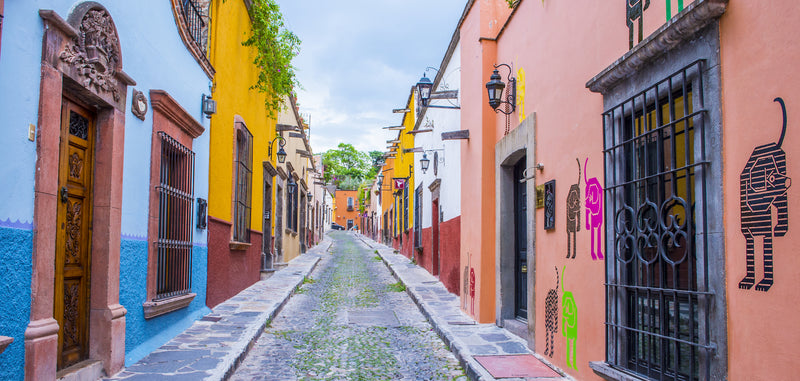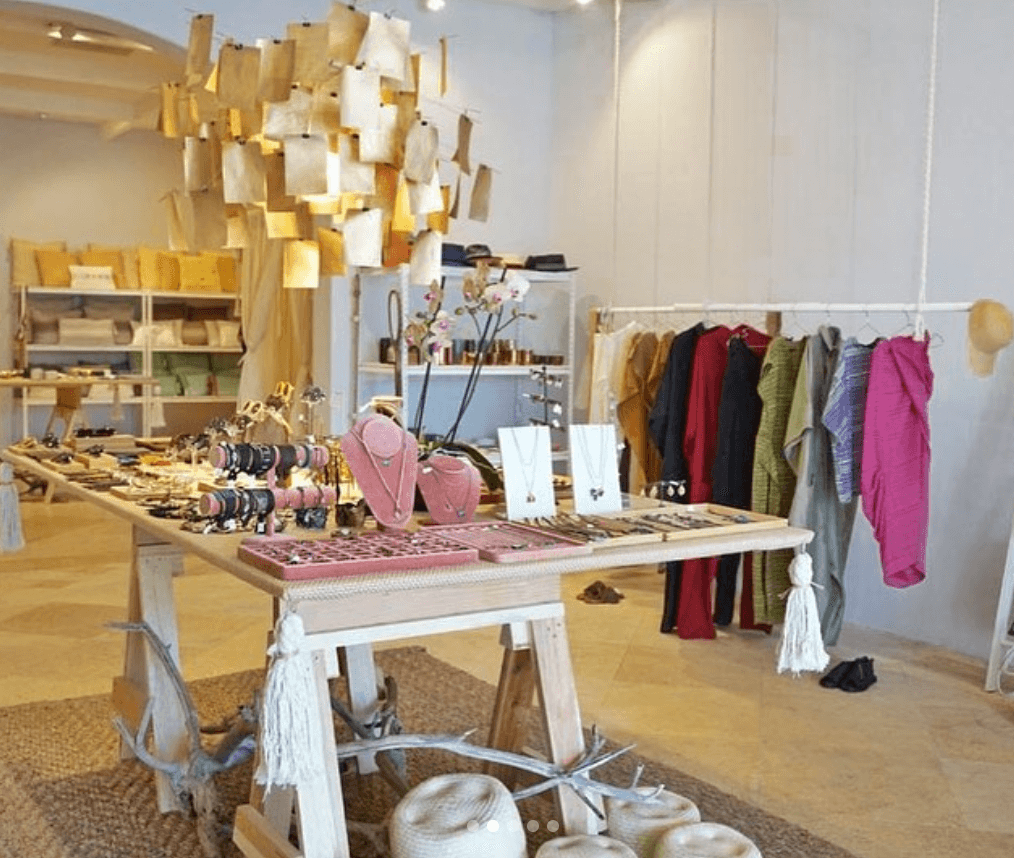Modern Mexican Design: Talent, Vision, Culture & Sustainability
Imagine yourself walking down the streets of a picturesque street in one of Mexico City's hipster areas... Restaurants full of lively conversations and delicious looking food. You keep walking, admiring the architecture that reminds you of your last trip in Europe. And then, a boutique with unique colors and textures attracts you to step inside.
You love how everything looks, so modern and chic, you pick a piece that looks the right one for your style. When you touch the material, you cannot believe how soft and good quality the cotton feels. Then you keep feeling the textile and notice small little details that remind you of the native communities you visited the previous days. And when you look at the label, it all makes sense: it was handmade by an artisan in the state of Chiapas. When you try it on, with a big smile on your face, you say to yourself: this is it! A piece that goes with my own style, that I can wear everyday, and that will remind me of the rich culture of traditions and people in Mexico.
Now you can find a variety of Mexican brands who are taking traditions to the next level in fashion. Mexican designers are getting inspired by century old traditions and collaborating together with native communities to promote and preserve Mexican culture. These designers fully commit to their social responsibility motto: using high quality and natural materials, fair payment, providing new tools and development opportunities to the native communities, and respect their traditions and way of working.
Pottery is also another ancient technique that is being used by designers to collaborate with artisans. Sometimes the process used to harden the clay for generations (like black clay process) is the one used by designers to create their pieces. And they also work hand in hand with the artisan to create a piece of pottery that combines ideas from both artisans and designers.
The materials used are mainly natural like cotton, wool, or silk for textiles, and clay and glass for pottery. Some even take it further and do natural coloring. Due to our ancient traditions, designers can still find a lot of material sourced naturally, and they are learning a lot from artisans who have learned this knowledge for many past generations. Other materials that are highly used is wood and natural fibers like palm leaves for baskets. Copper is another material used for interior decor. Artisan hands and tools give a special high-quality detail to the finishing of the copper combined with smooth modern concepts.
Other designer brands have opted for working with synthetic materials to promote recycling of materials and no harm to animals. Handwoven recycled plastic bags have become a worldwide trend. And fake leather materials sourced from cactus are also becoming an alternative material for developing beautiful and sustainable designs. Repurposing old material like Enamel is also a trend, who doesn’t remember their grandma’s enamel pots? This time inspired with modern Mexican culture iconography.
The social commitment of these designers goes beyond the development of unique products, they want to provide a better future for the communities they work with. Besides fair pay, these brands provide workshops in different topics (health, family planning, work rights) to help them be more informed. And also train them and provide new skills and techniques that they can apply to their work. It is also important to respect the way artisans work. When you produce handmade products you don't have the mass production pressure to produce as much as you can. On the contrary, you can give the artisan the flexibility to work from home, or get inspired by working together in ateliers. These makes them feel more fulfilled with their work and be proud of the final piece.

The challenges these designers face selling in Mexico, and even abroad, is that people don't really see the value of the whole production process and the stakeholders involved in bringing these unique pieces to the consumer. When people think of artisanal and made in Mexico, they automatically think of cheap prices. We need to start supporting these small entrepreneurs who are pushing for a better future not only their business but of the communities and society around them.
Fortunately, consumers are starting to value products done with fair pay, but is not only about the hand work, they also need to add to the equation the cost of processing high quality natural materials, the design process itself from everybody who is involved into making the concept happen, and the intangible value of their social work by working in collaboration (instead of imposing), respecting century old traditions.
So, next time you step into one of these unique boutiques in Mexico, don't forget to ask them about the whole process for making that special piece you like. We are sure they will be delighted to tell you all the details from sourcing materials, who made your product, and the story of the designer and her/his social commitment and inspiration.







0 comments